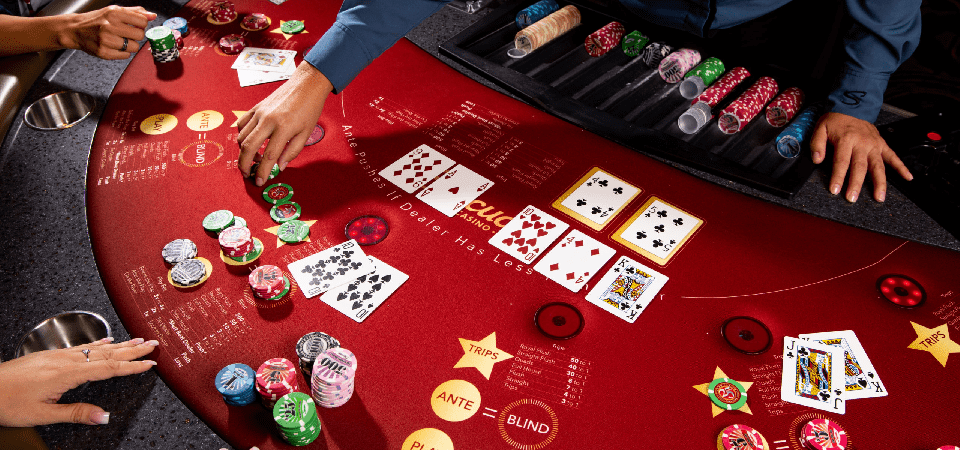Poker - The King of Card Games
Poker is a game of skill, psychology, and strategy. It’s a game that has captured the imaginations of players for centuries, and it remains a staple in both land-based and online casinos. The most popular variation is Texas Hold'em, where players are dealt two hole cards and share five community cards to make the best hand possible.
Game Rules:
-
The Blinds:
-
In Texas Hold’em, there are two forced bets: the small blind and the big blind. These bets ensure that there is money in the pot before any cards are dealt.
-
-
The Deal:
-
Each player is dealt two private cards (hole cards). These are only visible to the player.
-
The dealer then places five community cards face-up in the middle of the table.
-
The Flop: The first three community cards.
-
The Turn: The fourth community card.
-
The River: The fifth and final community card.
-
-
-
Betting Rounds:
-
There are four betting rounds: Pre-flop, post-flop, post-turn, and post-river. Players can check, bet, raise, call, or fold depending on their hand and the actions of other players.
-
-
The Showdown:
-
After the final round of betting, players reveal their hands. The best hand wins the pot.
-
Poker Strategies:
-
Starting Hand Selection:
-
Don’t play every hand. Only play premium hands like high pairs (Aces, Kings), Ace-King suited, or suited connectors (like 10–Jack suited).
-
Avoid playing weak hands like low offsuit cards, especially from early positions.
-
-
Position is Key:
-
Players who act later in the betting round have an advantage since they can see how others play before making their decision.
-
Being in a late position allows you to make more informed decisions, especially when considering bluffing.
-
-
Aggression is Crucial:
-
Poker is a game of aggression. Players who are aggressive with their betting and bluffing can force opponents to make mistakes.
-
However, don’t overdo it. Be selective and strategic with your bluffs.
-
-
Pot Odds and Expected Value:
-
Pot Odds: The ratio of the current size of the pot to the cost of a contemplated call. This tells you whether a call is profitable in the long run.
-
Expected Value (EV): A calculation of whether your bet or call will lead to a profit or loss over the long term.
-
Advanced Poker Tips:
-
Bluffing:
-
Bluffing is an important tool, but it needs to be done with caution. Bluff when your opponent is likely to fold, but avoid over-bluffing, especially against tight players.
-
-
Read Your Opponents:
-
Poker is as much about reading other players as it is about the cards you’re holding. Watch for betting patterns, physical tells (in live games), and changes in behavior.
-
-
Know When to Fold:
-
Many players lose money by getting too attached to their hands. If the pot gets too big or the board shows signs that your hand is beaten, don’t be afraid to fold.
-
-
Use Online Tools:
-
In online poker, there are many tools and HUDs (heads-up displays) that can help track player tendencies and statistics. Use these tools to get an edge, especially in multi-table tournaments.
-
Tips and Common Mistakes:
-
Manage Your Bankroll:
-
Never bet more than you can afford to lose. Set a limit for each session and stick to it.
-
-
Don’t Play Every Hand:
-
One of the biggest mistakes is playing too many hands. Stick to a solid range of starting hands, and fold weaker hands early.
-
-
Understand Tilt:
-
Tilt refers to the emotional frustration that can cloud your judgment. It’s crucial to stay calm and collected. If you find yourself on tilt, take a break.
-











